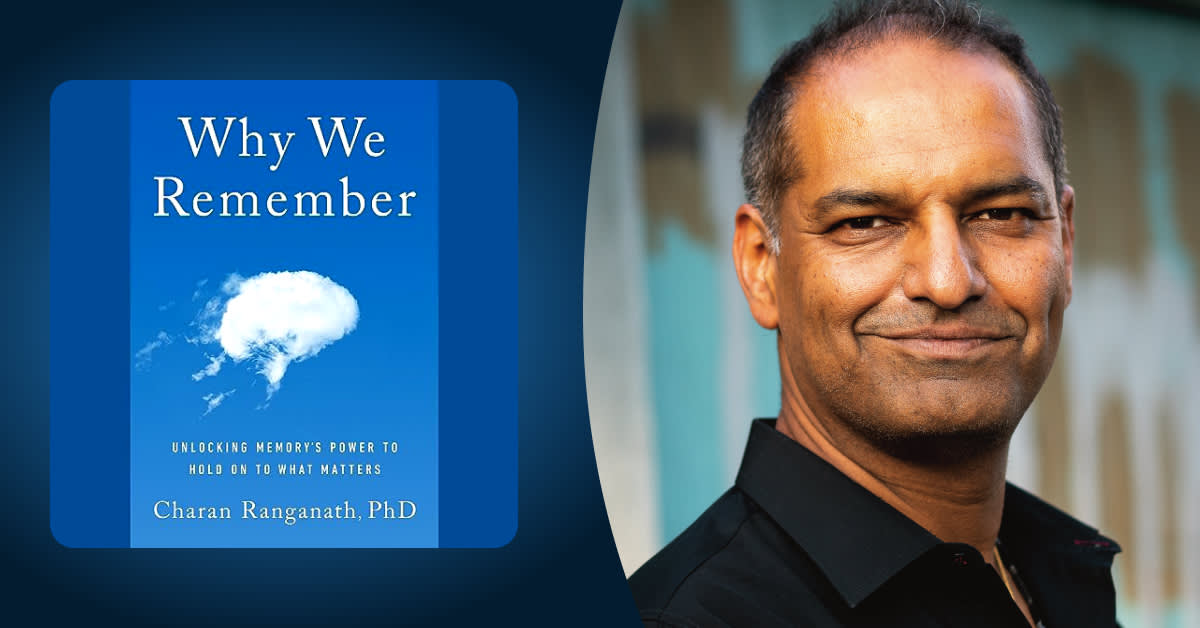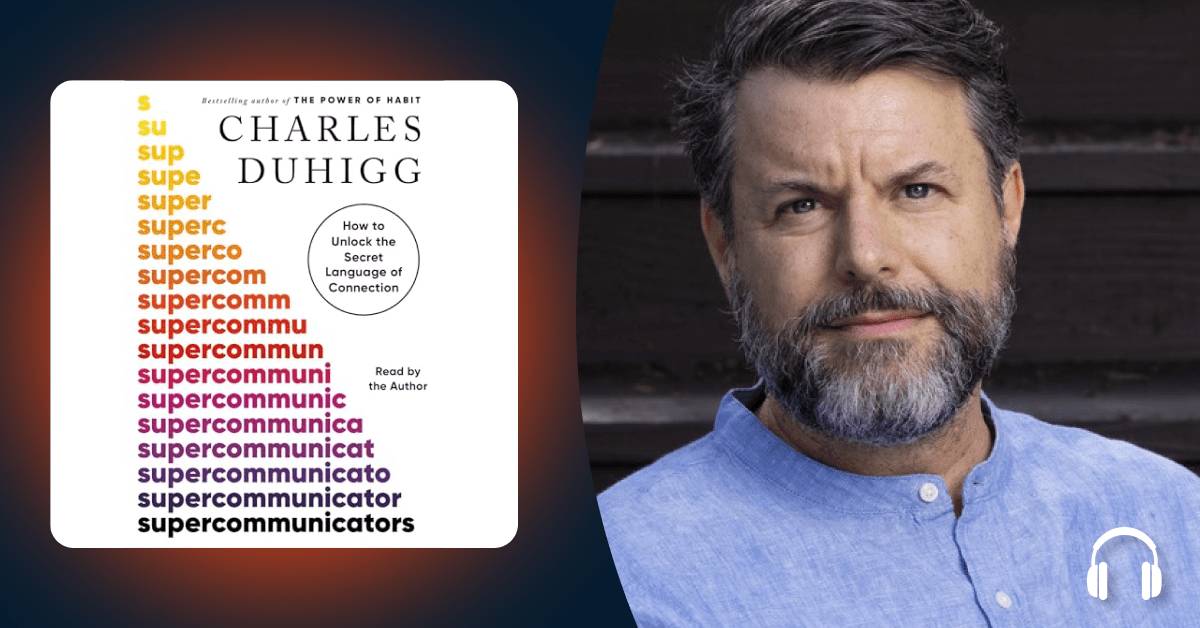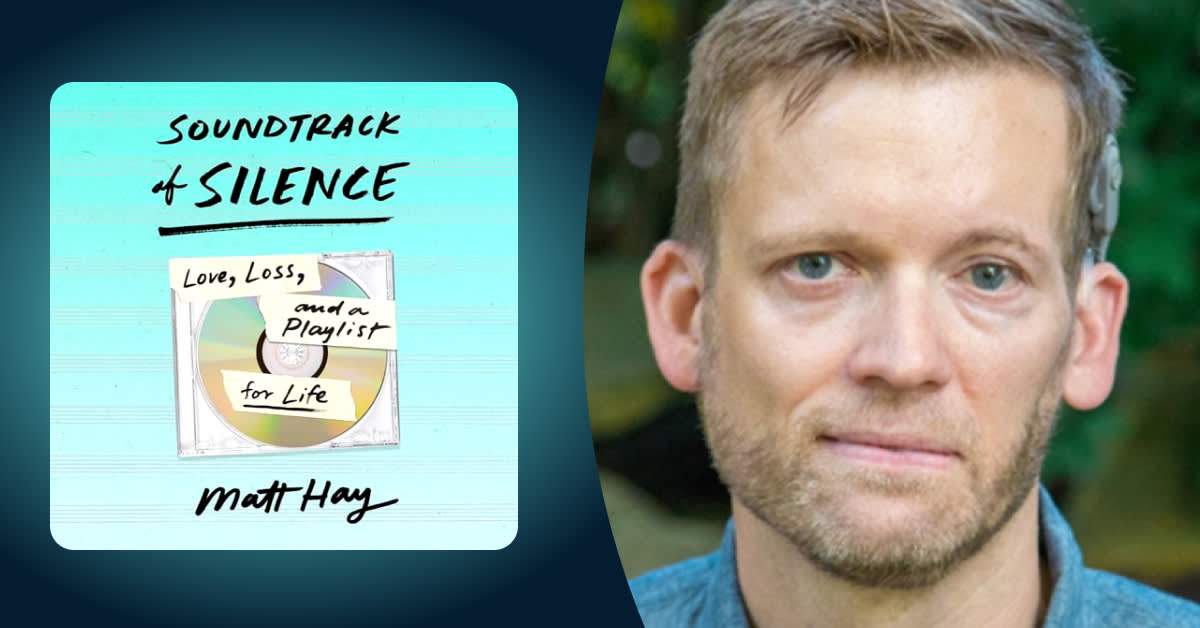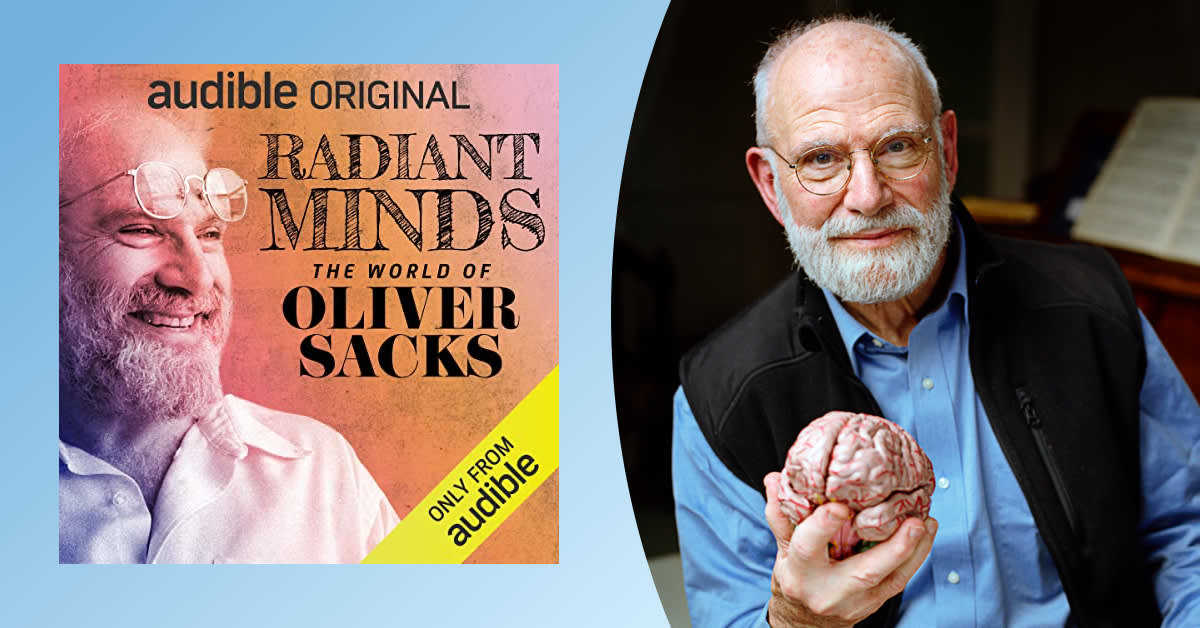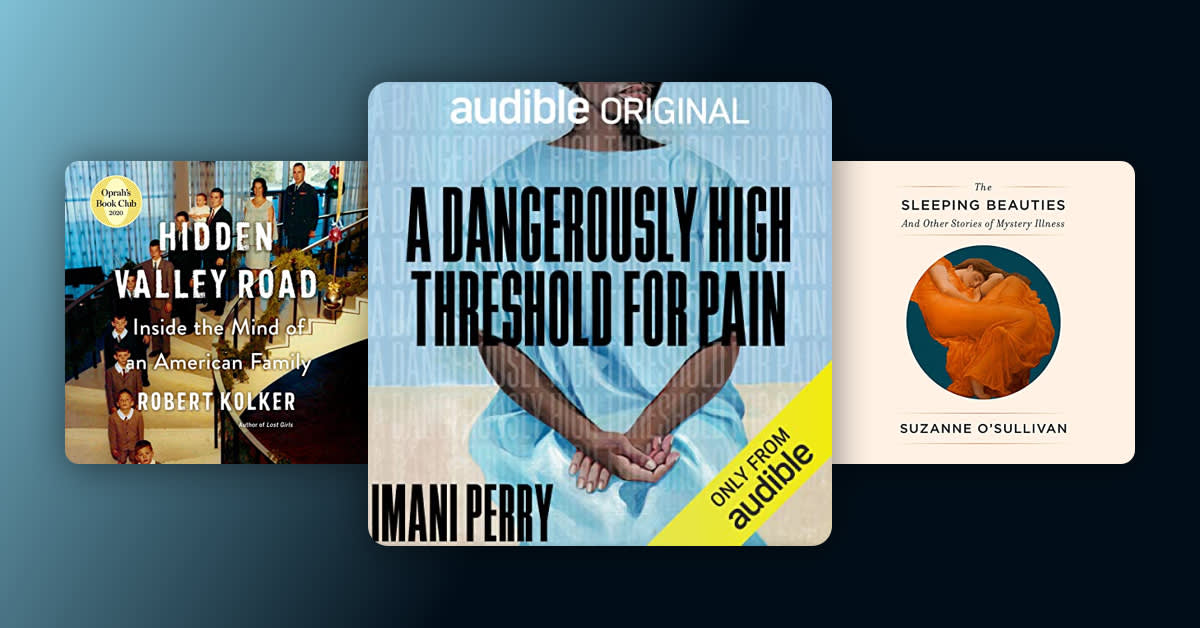If I could fix just one thing about myself, it would be my terrible memory. Over the years I've read and listened to hundreds of beloved books that are somehow now reduced to the bare facts of title, author, and maybe a stubborn sticky character detail or plot point not yet lost to the fog. Imagine the sparkling conversations and rich insights if I could draw on every drop of knowledge I'd ever ingested, or even half—or a quarter! And then there's aging, which brings such persnickety complaints into sharp relief. As we gear up for a presidential election between two of the oldest candidates in US history, memory is top of mind for much of the nation. But what if we're thinking about it all wrong?
A new audiobook by one of the leading memory researchers in the world, neuroscientist Charan Ranganath of the University of California at Davis, takes the revolutionary—yet deeply researched, and deeply reassuring—stance that, in fact, humans are designed to forget. Forgetfulness is a feature, not a bug, of our extraordinary brains. I learned so much from the fascinating research and refreshing perspective in Ranganath's work, which is a balm for anyone who's ever bemoaned their inability to recall a name or the location of their keys. I was thrilled to talk to the author about Why We Remember and how to do it more effectively.
Kat Johnson: You are a rock star of the memory research world. When and how did you know that, after decades of study, you had a book on your hands?
Charan Ranganath: Ha, thank you! I have known for a long time that I wanted to write a book to explain the science of memory that could be accessible to anyone, but I did not think I was ready until a series of events changed my mind. In fall 2019, my band broke up, and I had all this creative energy but no outlet for it, so I started thinking about writing. Then, in March 2020, I was contacted by a literary agency encouraging me to write a book. And then a couple of weeks later, the pandemic hit. It felt like the universe was saying, "You’re ready—just do it." And as the pandemic started to unfold, it became evident to me that was the right decision. People need to hear from scientists now more than ever.
Speaking of rock stars, I loved how you wove your love of music and your experience as a musician into the story. How do you think your punk rock ethos has influenced you as a psychologist, professor, and now writer?
One influence was the do it yourself, or DIY, ethos in the punk scene. When my band played shows, we had to DIY everything—booking the show, putting up fliers, hauling our gear in and out of the clubs, selling our merch … we even hand-packed all of our records. No manager, no roadies, just us. When you are in that situation where you have the freedom to do what you want but virtually no money or resources to make it happen, you have to get creative. That experience served me well as a scientist because it taught me to be resourceful and creative whenever I was faced with a challenge in the lab. If I didn’t know how to get the job done, I’d just read and talk to people and eventually figure it out.
“Memory is selective, so it is better to focus on quality over quantity.”
The second thing, I think, is that the punk scene was very down to earth. Anyone who was on stage could just as easily be someone in the audience. And now, when I teach and speak about memory research, I try to look at it from the perspective of people in the audience who aren’t academics. When I wrote this book, I wanted to get away from references to Marcel Proust or William James and instead tell stories and reference pop culture topics that felt genuine to me. It’s sometimes uncomfortable sharing all that personal stuff, but I wanted to connect with readers so that they could experience the excitement that I have about this research.
Most important, punk influenced my thinking. The bands I was into, like Hüsker Dü (which I later learned translates to “Do You Remember?”), fIREHOSE, Sonic Youth, the Minutemen, and so on, each had a unique sound and style that challenged people’s ideas about what rock music is supposed to sound like. That made me realize that I didn’t have to follow the status quo, whether it’s writing music or writing scientific papers. Early in my career, I proposed some ideas that challenged entrenched beliefs, and I initially faced some resistance. Fortunately, in science we back up our opinions with experimental data, so it’s a lot easier to convince scientists to change their minds than it is to change people’s ideas about music!
The title Why We Remember neatly reframes the key concern most of us have about memory: “Why are we so forgetful?” What’s most exciting to you about sharing your insights with a lay audience that’s likely beleaguered by their own ability to remember and looking to “fix” it?
You nailed it. I’m all for giving people tips on how to improve your memory, but when you tell people how to “fix” themselves, the implication is that you’re somehow broken. The message in my book is, “You’re not broken, but you probably need to change the way you think about memory.” We’re not designed to remember everything from the past, because memory is about making sense of the present and navigating the future. And once you realize that, you can see how memory influences our beliefs, decisions, relationships, and our very sense of who we are. To me, that is much more important than trying to remember the name of that guy who was in that thing.
Still, I must ask: What’s the #1 thing ordinary people can do to improve their recall—particularly episodic memory, the mechanism behind our ability to reminiscence about events in our lives that we’d like to remember?
Instead of trying to remember more, remember better. We know that memory is incomplete, because the brain prioritizes quality over quantity. We can only focus our attention on a few things at any given time, but we can extract an enormous amount of information if we use our attention judiciously. Episodic memories are tied to contexts, meaning the unique configuration of experiences that happen at a particular moment. That’s why a song from your teenage years, the smell of freshly baked bread, or the sight of your childhood home can bring you back to the past so easily. We can make all of our experiences more memorable by being in the moment, focusing on the sights, sounds, and smells during an event. Later on, if you imagine yourself back in that place and time, you will be able to pull up a rich memory from that event.
Humans have fretted about the unreliability of memory for at least hundreds of years, but there’s a definite sense that our world of digital distractions, data overload, artificial intelligence, pollution, etc., is contributing to increased problems with attention and memory. How true is this from a research perspective?
I think technology has both good and bad effects on our thinking and memory. On one hand, we can use technology intelligently to compensate for our limitations. For instance, it is hard to remember all the appointments that I have to make months in advance, or to remember every phone number and email address for my work contacts, so why not outsource that to external apps? I don’t have a photographic memory, but my smartphone literally does, so why not use it to document moments that I want to remember?
On the other hand, I think you hit the nail on the head about “data overload.” Many of us have a lot of demands on our attention, be it work, parenting, pets, and so on. With our smartphones, watches, and other devices, we have even more distractions. We try to compensate by multitasking, switching between conversations, checking text messages, reading emails, and so on. In Davis, you routinely see students listening to music on their earbuds while they are texting someone and riding a bike at the same time! The problem is that all the switching back and forth taxes your brain, and that comes at the cost of not being able to fully pay attention to whatever you are trying to do at the moment. Worse yet, we form these fragmented memories every time we switch from one task to another, and those memories are lacking in detail because we aren’t paying full attention. Those are exactly the conditions that promote forgetting, so it’s no surprise that when I’m really busy, I’m most likely to forget where I put my keys or wallet.
“We’re not designed to remember everything from the past, because memory is about making sense of the present and navigating the future.”
Another interesting effect of technology is that we have an unprecedented ability to document our lives through photos, videos, and social media posts. Paradoxically, I don’t think people who do this regularly have richer memories of their past, and in fact, there is evidence to suggest that mindlessly documenting can actually reduce your memory for the events you are documenting. Again, memory is selective, so it is better to focus on quality over quantity. Rather than documenting everything, it is helpful to spend much of your time trying to be present, and then focus on documenting a few key moments that will serve as anchors for your memories of those events later on. And if you take pictures, make sure to revisit them and try to actively recall those events when you do.
What was your involvement in the audiobook’s production, and how did you land on Mark Deakins as the narrator? What stood out about his performance?
Initially, I was apprehensive about having someone else narrate the audiobook, telling all these stories from my life. But my audiobook producer reassured me that a professional narrator doesn’t just read the text—they bring the reader on a journey. She saw a number of videos of me giving talks about memory research and used that to identify a number of award-winning narrators. When I heard Mark Deakins read a snippet from my book, I immediately knew he was right for the part. I think what nailed it for me was his timing and the way he changed the tone of his voice to fit the mood of each sentence.
From my past experiences in bands, I know how hard it can be to nail a good vocal recording for a 3-minute song. With an audiobook, you’re talking about 12 finished hours of audio recordings, during which time they must speak with total clarity and still convey the prose in a conversational style. So, I have tremendous respect for narrators who have the talent to come into the studio and bring the words to life.
How do sonic experiences like hearing music or listening to a book potentially affect how that memory gets encoded or remembered in the brain? And if you’re a listener of audiobooks or podcasts and have had any personal experience with this, it would be interesting to hear!
This is a really interesting question, because audiobooks helped me learn to read! Audiobooks weren’t a thing when I was a kid, but my mom made them for me by recording tapes of her reading the book out loud so that I could listen and read along with the tape as many times as I wanted. Hearing her read the book out loud added a whole new dimension so that I wasn’t just reading the book, but I was experiencing it.
I think these kinds of experiences affect what we remember from a book. Unlike silent reading, which is a solitary activity, there is a significant social element to having someone read a story to you. If the speaker conveys the emotions appropriately, using the right phrasing and accent, etc., then you can engage your “social brain” to experience the story through the narrator’s perspective, which enables you to form rich and vivid memories. It’s natural for us to do this because most of our spoken conversation time is spent sharing memories with one another.
